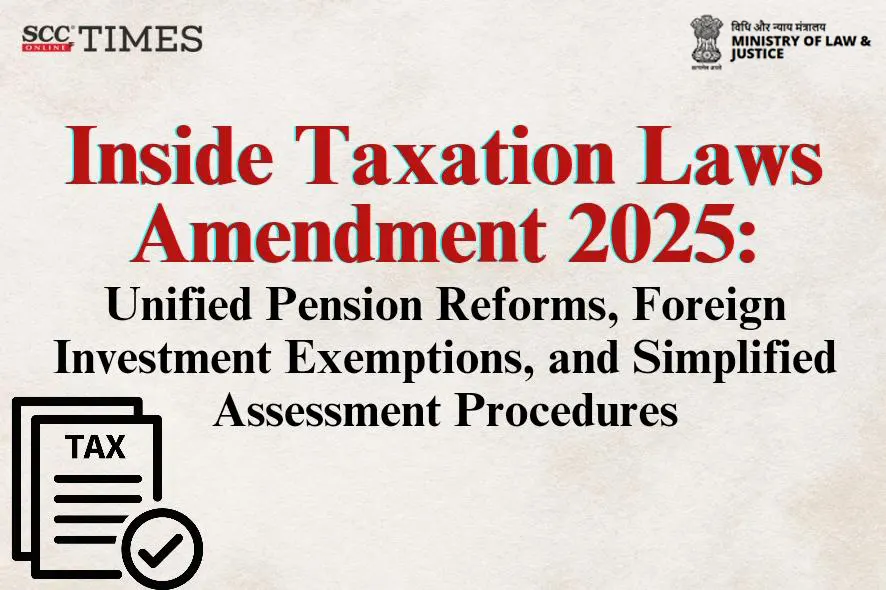On 21-8-2025, the Central Government notified Taxation Laws (Amendment) Act, 2025, introducing key changes to the Income-tax Act, 1961 and the Finance Act, 2025.
Key Amendments to Income-tax Act, 1961:
-
The Act formally acknowledges the Unified Pension Scheme as a recognized retirement benefit framework. It also provides tax exemptions for specific payments received from the National Pension System Trust, enhancing the scheme’s attractiveness for subscribers.
-
Under Section 10 of the Income-tax Act, two new clauses are introduced:
-
Clause 12AA: Up to 60% of the total corpus received by a subscriber upon superannuation, voluntary retirement, or retirement under Rule 56(j) of the Fundamental Rules is exempt from tax, provided the retirement is not classified as a penalty.
-
Clause 12AB: Any lump-sum payments received under the Unified Pension Scheme are also fully exempt from income tax.
-
-
The scope of eligible foreign investors has been broadened. The Public Investment Fund (‘PIF’) of the Government of Saudi Arabia, along with its wholly owned subsidiaries, is now explicitly included as a qualified entity for tax exemptions on investments made in India under this clause.
-
The standard deduction provisions have been expanded, allowing a broader range of salaried taxpayers to benefit from reduced taxable income, aiming at improving tax equity and simplifying compliance.
-
Section 80CCD is revised to introduce sub-section (3A), which mandates that any amount received from the pension account upon retirement is taxable unless transferred to a pool corpus.
-
A new sub-section (6) clarifies that transfers to a pool corpus are not treated as income. Additionally, the definition of “salary” has been updated to explicitly include dearness allowance, while excluding other allowances and perquisites, refining the basis for salary-related deductions and exemptions.
Key Amendments to Finance Act, 2025:
-
Section 49 has been amended to state that any pending assessments or reassessments will automatically abate if a search or requisition is conducted under Sections 132 or 132A. This prevents duplication and ensures procedural clarity during investigation.
-
The amendment clarifies that proceedings initiated between the date of search and the final order under Section 158BC will be governed by a streamlined process. This reduces procedural overlap, enhances efficiency, and aligns with the goal of faster resolution of search-related tax matters.


